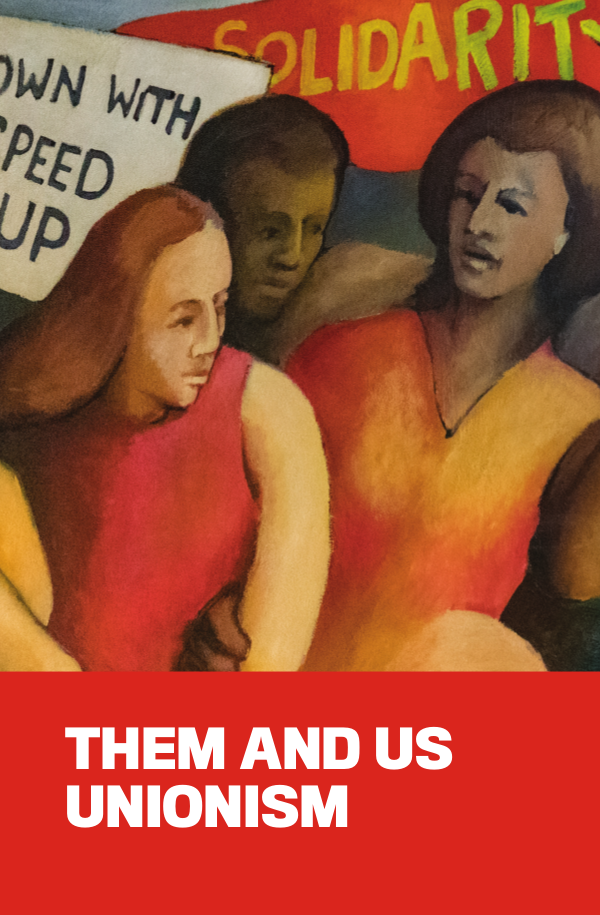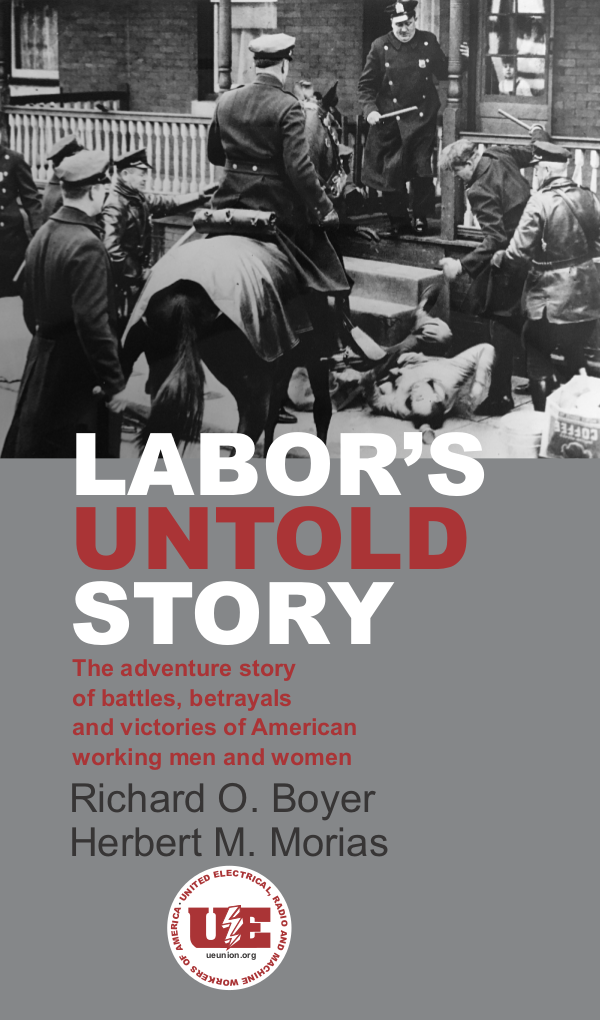
No single event in the recent history of our union has impacted every aspect of our union’s work like the COVID-19 pandemic has this year. All levels of our union from the locals to the regions to the national union have been impacted by the pandemic. Local membership and grievance meetings, negotiations and trainings; maintaining democratic, rank-and-file organizations; and organizing new members were all impacted by the pandemic. Despite one of the deadliest pandemics in over a hundred years, our members rose to face many difficult challenges during this public health crisis with militant, rank-and-file determination.
Almost overnight, locals were forced to address a deadly, air-born coronavirus in their workplaces. Our members demanded that their bosses maintain safe and healthy workplaces in the face of this deadly virus and fought to make sure it happened. Locals negotiated Memorandum of Understandings (MOUs) with their employers, including language protecting their members’ wages if they had to quarantine; suspending time and attendance policies; and adding hazardous duty pay.
Locals fought for personal protective equipment, plexiglass dividers, hand washing stations and access to sanitizing products. Locals demanded that their employers clean and sanitize bathrooms, break areas, and other common areas on a consistent basis. And locals also fought to have workers spread out in the workplace, and where feasible, work from home. (See “Safe Jobs Save Lives” below, about Local 150’s campaign for safety during the pandemic.)
Locals had to figure out new ways of negotiating in a safe, social distance manner, including using the video conferencing platform Zoom. In the face of worsening economic conditions, some locals negotiated one-year agreements to get past the pandemic. In workplaces where it wasn’t possible to hold safe, social distance grievance meetings, locals used conference calls or Zoom.
Locals also used conference calls and Zoom to hold monthly membership meetings, maintaining democratic, rank-and-file control. Locals 150 and 170, representing public sector workers in North Carolina and West Virginia respectively, held their state conventions over Zoom where they elected new officers, approved political action plans and conducted trainings.
The UE Education Department also used Zoom to conduct numerous workshops for members. These included a spring workshop on understanding the COVID-19 virus and federal relief measures; summer workshops on our new booklet, “Them and Us Unionism”; and workshops for Regional Council Meetings. We also tailored our steward training program to the Zoom platform. Ask your UE staff member for more information.
In the midst of the pandemic, our regional structures were reorganized, consolidating three regions into two new regions. Local union delegates approved this new regional structure at our last national convention. Delegates attending the new Eastern and Western Regional Council meetings met over Zoom to approve new constitutions, elect new officers and members to the regional executive boards and the UE’s General Executive Board (GEB), our national union’s highest decision-making body between national conventions. The new Eastern and Western Regions also had Fall council meetings, where delegates reported on their workplace fights, heard reports from regional presidents and national officers, and participated in racial justice trainings.
The GEB met multiple times during the pandemic over Zoom, approving a budget for the national union in June. The newly expanded GEB met in September, where the GEB members participated in a new workshop, “Building an Anti-Racist Union,” developed in conjunction with Unifor and National Nurses United as part of the North American Solidarity Project. Our national union also moved into a new office building in Pittsburgh this summer while continuing to provide our locals and members with resources and support.
UE’s organizing of new members did not pause during the pandemic. In one of the first large NLRB election victories during the pandemic, nearly 400 workers employed by federal contractors at the Kentucky Consular Center voted overwhelmingly in a mail ballot election in June to be represented by UE, and then went on to successfully bargain a first contract. UE Locals 893/IUP and 896/COGS won their recertification elections with support from over 70 percent of their bargaining units. The deteriorating working conditions faced by workers caused by the pandemic has generated other organizing campaigns. UE and the Democratic Socialists of America collaborated to form the Emergency Workplace Organizing Committee (EWOC), offering organizing support for workers in hundreds of nonunion workplaces around the country.
While the creation and distribution of COVID-19 vaccines at the end of 2020 give hope that the worst of the pandemic will soon be behind us, we need to continue to be vigilant in making sure that our employers maintain safe and healthy workplaces. Our strongest weapon in this fight remains our solidarity with our fellow workers.
Safe Jobs Save Lives
On March 16, six days after North Carolina governor Roy Cooper declared a state of emergency in response to the COVID-19 pandemic, UE Local 150, which represents public-sector workers throughout the state, held a press conference at the state capitol building, demanding expanded sick leave for all workers and protections for essential frontline workers.
Following the press conference and a letter to the governor, Local 150 began meeting with DHHS Deputy Secretary Kody Kinsley to address DHHS workers’ concerns. The local also prepared and delivered demand letters to each municipality where the local has a chapter, and to the UNC Board of Governors.
On April 3, over 1,000 workers across the state wore stickers to launch a “Safe Jobs Save Lives” campaign, to support workers’ demands for safety, PPE and hazard pay. The campaign continued throughout the year, with union members collecting and delivering petitions, holding rallies and marches, and speaking to the press.
At the end of the summer, as campuses in the University of North Carolina system made plans to re-open, university workers stepped up their efforts to protect their own safety that that of campus communities. Local 150 chapters at UNC-Chapel Hill and NC State University, along with new Local 150 members at NC Central University and UNC-Charlotte, organized and mobilized their co-workers, built coalitions with faculty and students, and joined a class-action lawsuit, receiving national press coverage.
COVID-19 Resources
Visit www.ueunion.org/covid19 for suggestions for maintaining local union functioning, demands locals should consider making on employers, suggestions for what to do if COVID-19 comes into your workplace, and summaries of the two major pieces of COVID-19 legislation passed this year.
Do you know a non-union worker who needs help fighting to keep their workplace safe? Direct them to the Emergency Workplace Organizing Committee at workerorganizing.org.
New UE Publications in 2020


This past year saw the publication of a new UE booklet, “Them and Us Unionism,” about UE’s philosophy of unionism. Drawing on UE history, “Them and Us Unionism” identifies five core principles of UE’s approach: aggressive struggle, rank and file control, political independence, international solidarity, and uniting all workers.
In 2020, UE also brought out a new printing of Labor’s Untold Story, the “adventure story of the battles, betrayals and victories of American working men and women,” that has been published by UE for 50 years, meeting the demand for a highly readable U.S. labor history, told from the perspective of working people.
Both publications can be purchased from the UE Online Store. Electronic versions (web and PDF) of “Them and Us Unionism” are also available at www.ueunion.org/ThemAndUs